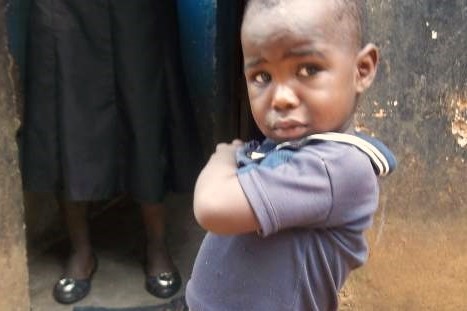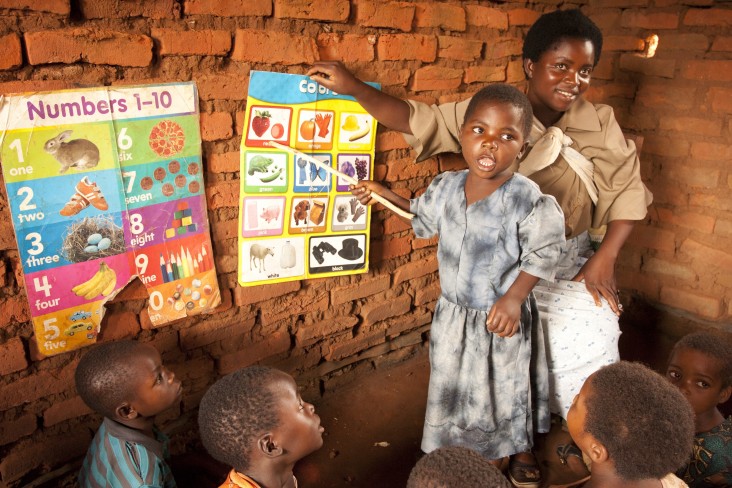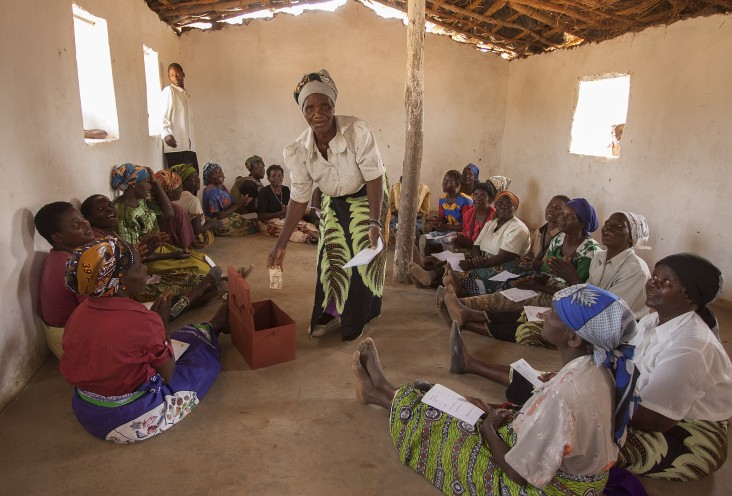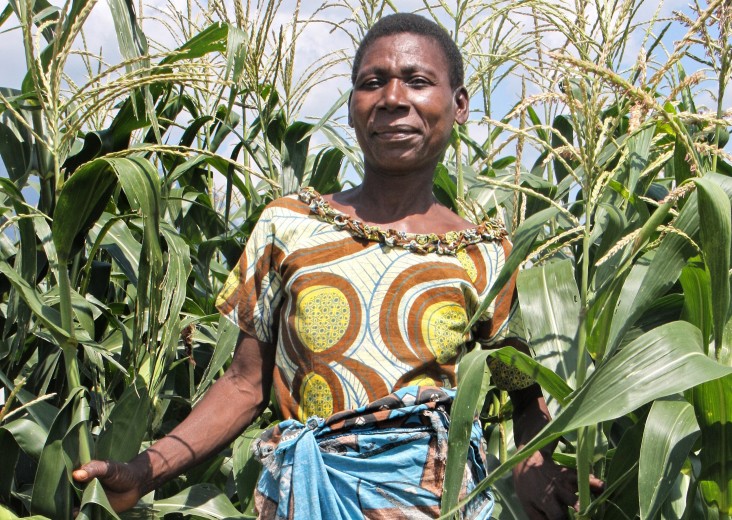USAID/Malawi's Activities: Gender Based Violence, Women’s Empowerment, and Adolescent Girls
Gender Based Violence (GBV) remains a serious development challenge in Malawi. In 2014, USAID included Malawi as one of 35 GBV priority countries due to the high rates of child marriage in the country. USAID/Malawi’s response to GBV in FY14 was informed by two USAID guidance documents: “Ending Child Marriage and Meeting the Needs of Married Children: The USAID Vision for Action” and the “United States Strategy to Prevent and Respond to Gender-Based Violence Globally.”
USAID/Malawi will continue tackling GBV challenges through the integration of GBV in health sector activities in Maternal Neonatal and Child Health (MNCH), Family Planning (FP), and Reproductive Health (RH) activities and by facilitating GBV client referrals to remedial systems. In addition, USAID/Malawi has included women’s empowerment and adolescent girls’ activities in the Sustainable Economic Growth, Democracy and Governance, and Education sectors.
Under the Global Health Initiative strategy, GBV issues are integrated into project strategy, design, and implementation. Integration activities are focused on HIV/AIDS, maternal, neonatal and child health, and family planning/reproductive health. Interventions in these areas include: working with communities to increase male involvement and prevent mother-to-child HIV transmission, addressing norms that increase women’s and girls’ vulnerability to HIV infection, implementing community mobilization activities that provide outreach to women and girls, and improving interpersonal communication and counseling skills of health providers to overcome gender barriers.

In an effort to leverage funding and increase impact, GBV screening has been integrated into HIV testing and counseling sessions. To further connect clients to existing GBV services, USAID/Malawi activities provide client referrals to Victim Support Units and post‐exposure prophylaxis services at the community and district level. Activities test approaches for reaching youth to address cultural barriers to healthy behavior. One of the overarching goals of these interventions is to mitigate and reduce GBV, particularly through the enhanced referral and screening mechanisms.
The education sector in Malawi has a high attrition rate for girls. The consequences of girls leaving school early are profound as studies show that more years spent in school results in improved health outcomes for women and their communities. In fact, each additional year a girl stays in school is associated with a 10 percent increase in wages, increased life expectancy, and reduced fertility. According to the 2010 Malawi Demographic and Health Survey, 51 percent of men and 38 percent of women ages 20-24 had completed primary school, showing substantial attrition, particularly among girls. In secondary school, the numbers are even more startling. On average, out of every 100 girls who begin Standard 1 in Malawi, only about three will enter into secondary education. Of those three, only one will enter university. This means that in Malawi, a girl is 50 times more likely to be married before her 18th birthday than to enter university.
USAID’s Early Grade Reading Project (EGRP) helps keep both girls and boys in school by developing the reading skills of Standards 1-3 students. In FY14 USAID reached 617,981, out of an estimated 1.7 million children attending Standards 1-3. The planned Malawi Early Grade Reading Improvement Activity, which will continue the work EGRP has begun, will directly address some of the issues that result in low transition rates of girls into secondary school. For example, the creation of safe learning environments for reading will offer spaces safe from bullying and sexual harassment, which studies have shown contribute to girls dropping out and repeating grades.
To further address the challenge, USAID/Malawi recently launched a new activity called ASPIRE that targets upper primary school girls for improved reading skills, and the adoption of positive sexual and health-care seeking behaviors while simultaneously addressing some key cultural barriers that limit girls’ access to schooling.

In the past year, Sustainable Economic Growth (SEG) interventions included activities that increase women‘s access to income and productive resources as well as greater gender engagement in non-traditional roles. This resulted in increased female income generation and nutritional impact at the household level and ensured a greater role for women in economically productive activities. These included women’s participation in village savings loans (VSL) groups, agribusiness groups, small scale irrigation groups, and livestock activities.

In one SEG activity, VSL groups saved $2.4 million throughout the five year life in the eight districts of intervention. Assessments revealed that the Integrating Nutrition into Value Chains (INVC) activity ensured that more women were included in training positions. Reports indicated that at least 50 percent of new lead farmers and lead farmer assistant trainees were women. Focus group discussions with beneficiaries from the Wellness and Agriculture for Life Advancement (WALA) activity revealed that women held roughly 70 percent of leadership positions. The focus group discussions revealed that both men and women who marketed through the activity realized increased household income.
Investments in biodiversity conservation, climate change adaptation and sustainable landscapes seek to account for and address gender specific vulnerabilities to climate change and promote forest related livelihood opportunities of particular relevance to women. USAID also sponsored three faculty members, two of who are women, from the Lilongwe University of Agriculture and Natural Resources to begin Ph.D. studies at Land Grant Universities in the United States.

In the democracy and governance portfolio, USAID’s electoral and decentralization activity increased women’s informed participation in electoral and political processes. This was accomplished through targeted delivery of: 1) civic and voter education campaigns in advance of the 2014 tripartite elections; 2) media training to ensure fairness and accuracy in media coverage; and 3) training for both female and male moderators to conduct focus group opinion studies to improve the effectiveness of civic and voter education. The activity reached 27,871 female participants under the civic and voter education programs in USAID’s three focus districts of Balaka, Machinga, and Lilongwe Rural; delivered 74 days of media training to 13 female journalists; trained 1,584 domestic observers for the election, of whom 634 were female; and trained 44 focus group moderators, of whom 22 were female.
Related Stories and More Information:
Transforming Lives: Malawi Fights HIV with Prevention








Comment
Make a general inquiry or suggest an improvement.